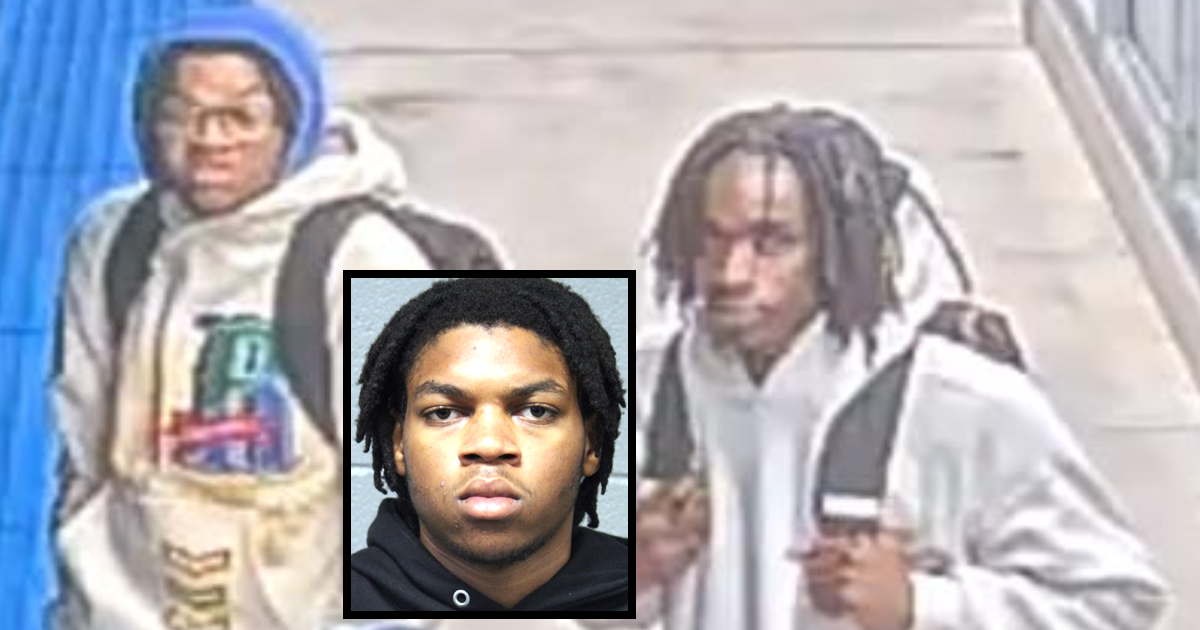
A Routine Ride Gone Horribly Wrong (image credits: cwbchicago.com)
Chicago – In the dim hum of a southbound Red Line train cutting through the night, an 18-year-old DePaul University freshman found himself trapped in a nightmare that no late-night commute should ever become.
A Routine Ride Gone Horribly Wrong
Picture this: it’s the early morning hours of September 6, and a young student hops on the train at Fullerton station after a long day. What starts as a simple trip home spirals into pure fear when two strangers corner him in a quiet car. Prosecutors describe how they backed him against the wall, their voices low and menacing, demanding his phone and wallet right there amid the rattling tracks.
These weren’t random opportunists; they had a plan. As the train rattled southward, the threats grew darker, with promises of violence if he didn’t comply. It’s the kind of story that makes you double-check your surroundings every time you step onto public transit.
By the time the doors opened at later stops, the student was no longer just a passenger—he was a pawn in their scheme.
Death Threats Force Quick Cash Transfers
Heart pounding, the teen handed over his phone, watching helplessly as the attackers scrolled through his contacts. They didn’t stop at robbery; they dialed his friends and family, putting the phone to his ear while barking orders. “Send money now, or he dies,” they allegedly warned, turning a personal device into a tool of terror.
The family, jolted awake by frantic calls, scrambled to comply. Apps like Cash App and Zelle became lifelines in the chaos, with transfers hitting accounts in real time as the train pushed deeper into the city. It’s a modern twist on extortion, exploiting tech that’s meant to make life easier but here only amplified the horror.
Crosstown Journey: From Lincoln Park to South Side Shadows
The ordeal stretched across Chicago’s sprawling grid, the Red Line becoming a forced tour of unease. Stations blurred by—Wilson, Belmont, Diversey—as the group moved, the student under constant watch. Prosecutors say the ride lasted until they finally exited in a dimly lit South Side alley, where the final demands played out under the cover of darkness.
That crosstown haul wasn’t just distance; it was time bought for more pressure, more money. Friends chipped in what they could, but the fear kept mounting with every stop. By the end, the teen was released, shaken but alive, in a neighborhood far from the familiar buzz of campus life.
It’s a reminder of how quickly a familiar route can feel like enemy territory.
Police Step In: Identifying the Culprit
Hours later, Chicago police pieced together the puzzle from the victim’s account and digital trails. They zeroed in on Ricky Willis, 18, as one of the attackers, thanks to surveillance footage and those incriminating app transactions. Willis now faces felony charges, including aggravated robbery and kidnapping, in a case that’s drawing heat from local outlets like CWB Chicago.
The second suspect remains on the loose, adding urgency to the investigation. Cops are urging anyone with tips to come forward, emphasizing how these digital breadcrumbs can crack open even slick operations.
Willis’s arrest brings a sliver of justice, but the hunt continues for full closure.
Why This Hits Close to Home for Students
For DePaul’s Lincoln Park crowd, this isn’t abstract news—it’s a wake-up call on streets they walk daily. The university has ramped up safety alerts, reminding kids to travel in groups and stay alert on the L. But stats show CTA crimes like this aren’t rare; robberies on trains have ticked up, making headlines from Loop muggings to North Side scares.
Parents are left reeling, wondering how to shield their kids in a city full of promise but edged with risk. It’s sparked talks online, from X posts decrying transit woes to calls for more patrols.
- Stick to well-lit cars during off-hours.
- Share your location with trusted contacts.
- Report suspicious behavior immediately to CTA staff.
- Keep apps locked with strong security.
- Consider rideshares for late nights if possible.
Lessons from a City’s Underbelly
This incident underscores a harsh reality: Chicago’s transit system, vital and vibrant, can turn vulnerable in the wrong hands. While one suspect is off the streets, it prompts bigger questions about safety nets for riders young and old.
Key Takeaways
- Digital extortion via apps is on the rise—lock down your phone like your life depends on it.
- Quick police work, fueled by tech evidence, can turn the tide in these cases.
- Stay vigilant; one wrong ride shouldn’t end a bright future.
In the end, the student’s survival and the charges against Willis offer hope amid the fear, but it’s a stark nudge to rethink how we navigate urban life. What steps would you take to stay safe on public transit? Share your thoughts in the comments below.







